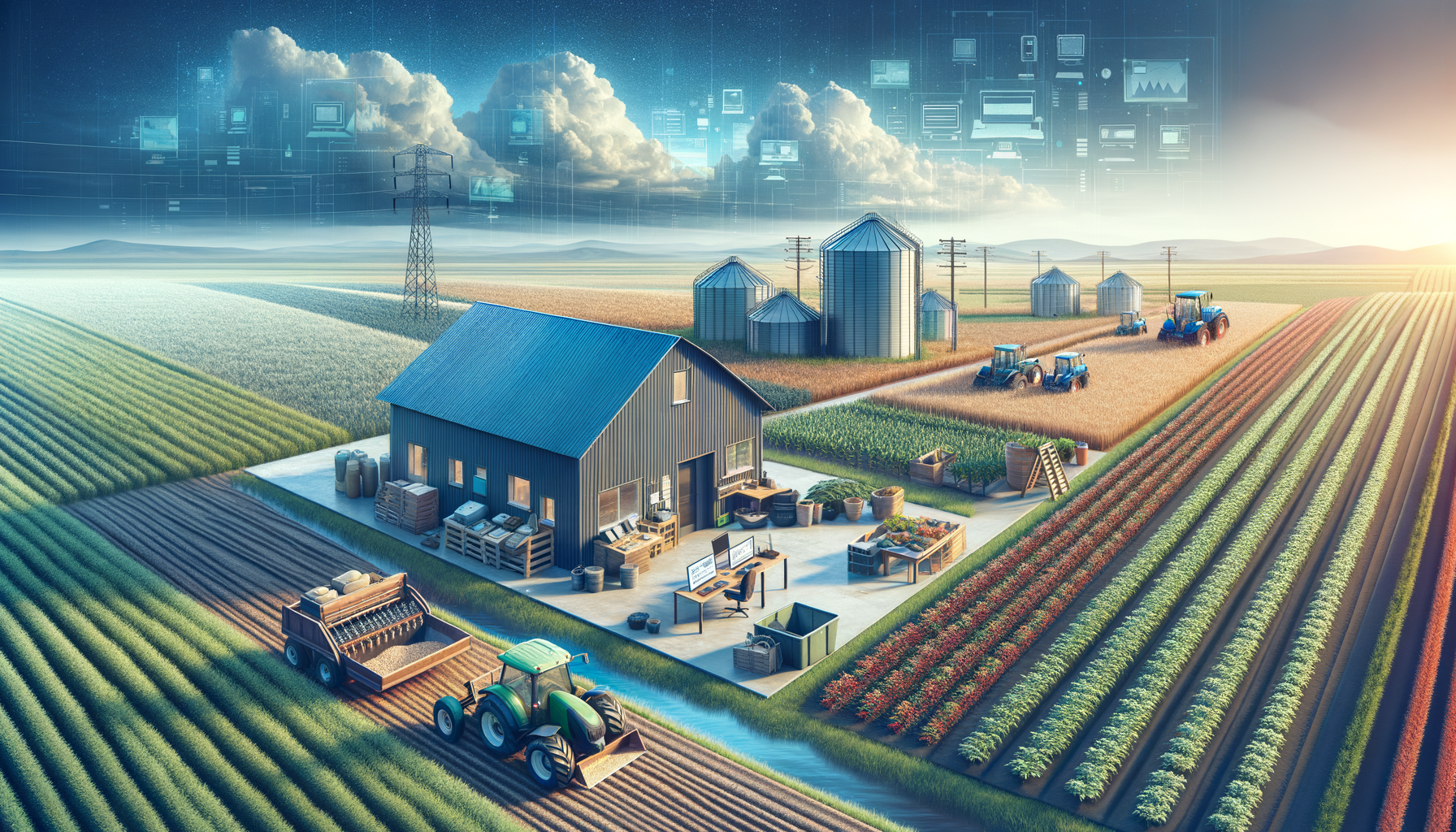
Farm Accounting Software: Helping Your Farm Stay Organized
The Role of Farm Accounting Software in Modern Agriculture
In the rapidly evolving world of agriculture, keeping track of finances is crucial for farm sustainability and growth. Farm accounting software has emerged as an indispensable tool for farmers, helping them to manage their financial operations with precision and ease. This technology not only streamlines the bookkeeping process but also enhances decision-making by providing valuable insights into the farm’s financial health.
Farm accounting software offers a range of features tailored to meet the unique needs of agricultural businesses. These include tracking income and expenses, managing payroll, and handling tax compliance. By automating these processes, farmers can save time and reduce the risk of human error. Moreover, the software provides detailed reports and analytics, enabling farmers to make informed decisions about their operations.
One of the key benefits of using farm accounting software is its ability to integrate with other farm management tools. This integration allows for seamless data sharing across different platforms, ensuring that all aspects of the farm are aligned and working towards common goals. As a result, farmers can focus more on their core activities, such as crop production and livestock management, while the software takes care of the financial details.
Features and Benefits of Farm Accounting Software
Farm accounting software comes packed with features that cater specifically to the agricultural sector. These features are designed to address the unique challenges faced by farmers, such as fluctuating commodity prices and seasonal cash flows. Some of the standout features include:
- Expense Tracking: Allows farmers to categorize and monitor expenses, helping them to identify cost-saving opportunities.
- Income Management: Facilitates the recording of sales and revenue streams, providing a clear picture of the farm’s profitability.
- Tax Compliance: Simplifies the process of preparing and filing taxes, ensuring compliance with government regulations.
- Payroll Management: Automates employee payments and deductions, reducing administrative workload.
- Financial Reporting: Generates comprehensive reports that offer insights into the farm’s financial performance.
The benefits of farm accounting software extend beyond mere convenience. By providing accurate and timely financial information, the software empowers farmers to make strategic decisions that can enhance profitability and sustainability. Additionally, the software’s ability to forecast future financial trends helps farmers plan for the long term, ensuring the continued success of their operations.
Choosing the Right Farm Accounting Software
Selecting the right farm accounting software is a critical decision that can significantly impact a farm’s financial management. With numerous options available in the market, farmers need to carefully evaluate their needs and preferences before making a choice. Here are some factors to consider when selecting farm accounting software:
- Ease of Use: The software should have an intuitive interface that is easy to navigate, even for those with limited technical skills.
- Customization Options: Look for software that can be tailored to meet the specific needs of your farm, such as crop type or livestock management.
- Integration Capabilities: Ensure that the software can integrate with other farm management tools and systems, facilitating seamless data sharing.
- Customer Support: Choose a provider that offers reliable customer support to assist with any technical issues or queries.
- Cost: Consider the pricing structure and ensure that it aligns with your budget and financial goals.
By taking these factors into account, farmers can select a farm accounting software solution that enhances their financial management and supports their overall business objectives.
Implementing Farm Accounting Software: Best Practices
Successfully implementing farm accounting software requires careful planning and execution. To maximize the benefits of the software, farmers should follow best practices that ensure a smooth transition and effective use. Here are some tips for implementing farm accounting software:
- Conduct a Needs Assessment: Before implementing the software, assess your farm’s financial management needs and identify areas for improvement.
- Train Your Team: Provide training for all team members who will be using the software to ensure they are comfortable and proficient with its features.
- Set Clear Goals: Define specific goals for using the software, such as improving expense tracking or enhancing financial reporting.
- Monitor Progress: Regularly review the software’s performance and its impact on your farm’s financial management to identify areas for further optimization.
- Seek Feedback: Encourage feedback from users to identify any challenges or areas for improvement and make necessary adjustments.
By following these best practices, farmers can effectively implement farm accounting software and leverage its capabilities to improve their financial management and overall farm operations.
The Future of Farm Accounting Software
As technology continues to advance, the future of farm accounting software looks promising. Innovations in artificial intelligence and machine learning are expected to further enhance the capabilities of these tools, providing farmers with even more powerful insights into their financial operations. These advancements will enable farmers to make data-driven decisions that optimize efficiency and profitability.
Moreover, the increasing adoption of cloud-based solutions is set to revolutionize farm accounting software. Cloud technology offers several advantages, including real-time data access, enhanced collaboration, and improved data security. By leveraging cloud-based solutions, farmers can manage their financial operations from anywhere, at any time, ensuring that they remain agile and responsive to changing market conditions.
In the coming years, we can also expect to see greater integration between farm accounting software and other agricultural technologies, such as precision farming tools and IoT devices. This integration will provide farmers with a comprehensive view of their operations, enabling them to optimize resource allocation and improve overall farm performance.
The future of farm accounting software is undoubtedly bright, with ongoing advancements poised to transform the way farmers manage their financial operations. By embracing these innovations, farmers can ensure the continued success and sustainability of their farms in an ever-evolving agricultural landscape.


